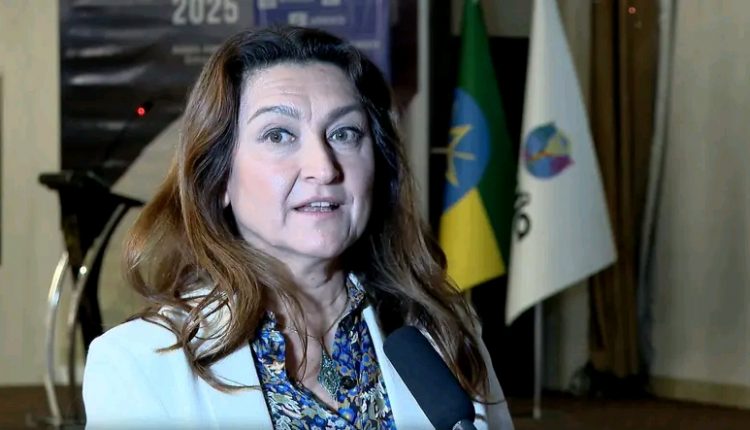Ethiopia’s endemic potential key to geotourism, sustainable dev’t: UNESCO
Addis Ababa, May 14, 2025 (FMC) — Ethiopia’s remarkable endemic potential is crucial in unlocking geotourism and achieving sustainable development, according to the United Nations Educational, Scientific and Cultural Organization (UNESCO).
The three-day workshop on “The Role of UNESCO Global Geoparks and Geotourism for Sustainable Development” co-hosted by the Ministry of Tourism and UNESCO, explored way to boost tourism potentials.
Özlem Adiyaman Lopes, UNESCO Senior Programme Manager, emphasized the transformative rich potential in Ethiopia.
The manager underlined that Ethiopia’s significant potential for job creation through geopark and geotourism development, both nationally and within the African context.
“This workshop has meaningfully contributed to Ethiopia’s tourism sector,” she stated. “It will support efforts to register already protected areas as UNESCO Global Geoparks, fostering geotourism growth and providing economic benefits for local communities.”
The manager also pointed out that UNESCO designates significant natural, historical, and cultural sites, and acknowledges countries’ work in education, conservation, and promotion.
She clarified that geoparks are UNESCO’s newest designation, playing a key role in geological heritage conservation and the advancement of sustainable development.
Furthermore, while UNESCO operates with international standards, she explained that individual countries can create their own designations to reflect their specific cultural and environmental landscapes.
According to the manager, current initiatives focused on ensuring that designated cultural landscapes and tourism attractions create employment opportunities, especially for women and youth, while benefiting from adequate government and community backing.
This inclusive strategy is designed to promote the equitable distribution of tourism benefits and foster long-term, sustainable community development, she said, adding that the involvement of women and youth in these initiatives not only contributes to their economic independence but also strengthens the cultural identity of their communities.
However, despite the significant potential within Africa, the manager noted a limited presence in UNESCO site registration, with Morocco and Tanzania being notable exceptions.
She also emphasized Ethiopia’s distinct advantage due to its wealth of tangible and intangible heritage.
As the cradle of humankind, Ethiopia offers a rich tapestry of cultural and natural assets, encompassing indigenous knowledge systems, religious practices, and varied landscapes, she emphasized.
”Ethiopia is the origin of humanity, so we have deep culture. Ethiopians cultural heritage is immense so we have high number of well tied recognitions. So the culture is very rich here. Nature is very rich. So, this is the origin of the world, how the world is created. History of the earth is here geologically,” she underscored.
According to her, the country has intangible heritages, indigenous and local communities, different rituals and religious activities.
She further elaborated that UNESCO has already identified between 10 and 20 sites within Ethiopia, including significant cave systems, underscoring the nation’s potential for geopark development.
The country’s ongoing effort to develop geoparks and improve its tourism sector through a national policy framework has encouraged UNESCO to enhance its commitment to supporting these efforts, she told local newswire service ENA.

